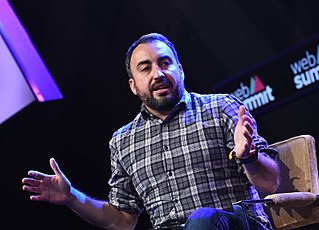A Quote by Robin Sloan
When you close a tab or when you finish an article on the web, it's gone unless you go back into your history or search for it or explicitly try to find it. Apps on your phone have this special property: they hang around. In some ways, they're more like a book on a bookshelf than they are like web pages.
Related Quotes
Search is now more than a web destination and a few words plugged into a box. Search is a mode, a method of interaction with the physical and virtual worlds. What is Siri but search? What are apps like Yelp or Foursquare, but structured search machines? Search has become embedded into everything and has reached well beyond its web-based roots.
The largest issue with search is that we learned about it when the web was young, when the universe was 'complete' - the entire web was searchable! Now our digital lives are utterly fractured - in apps, in walled gardens like Facebook, across clunky interfaces like those in automobiles or Comcast cable boxes.
Downloading and Web 2.0 have famously led to new ways of accessing culture. But these have tended to be parasitic on old media. The law of Web 2.0 is that everything comes back, whether it be adverts, public information films or long-forgotten TV serials: history happens first as tragedy, then as YouTube.

































